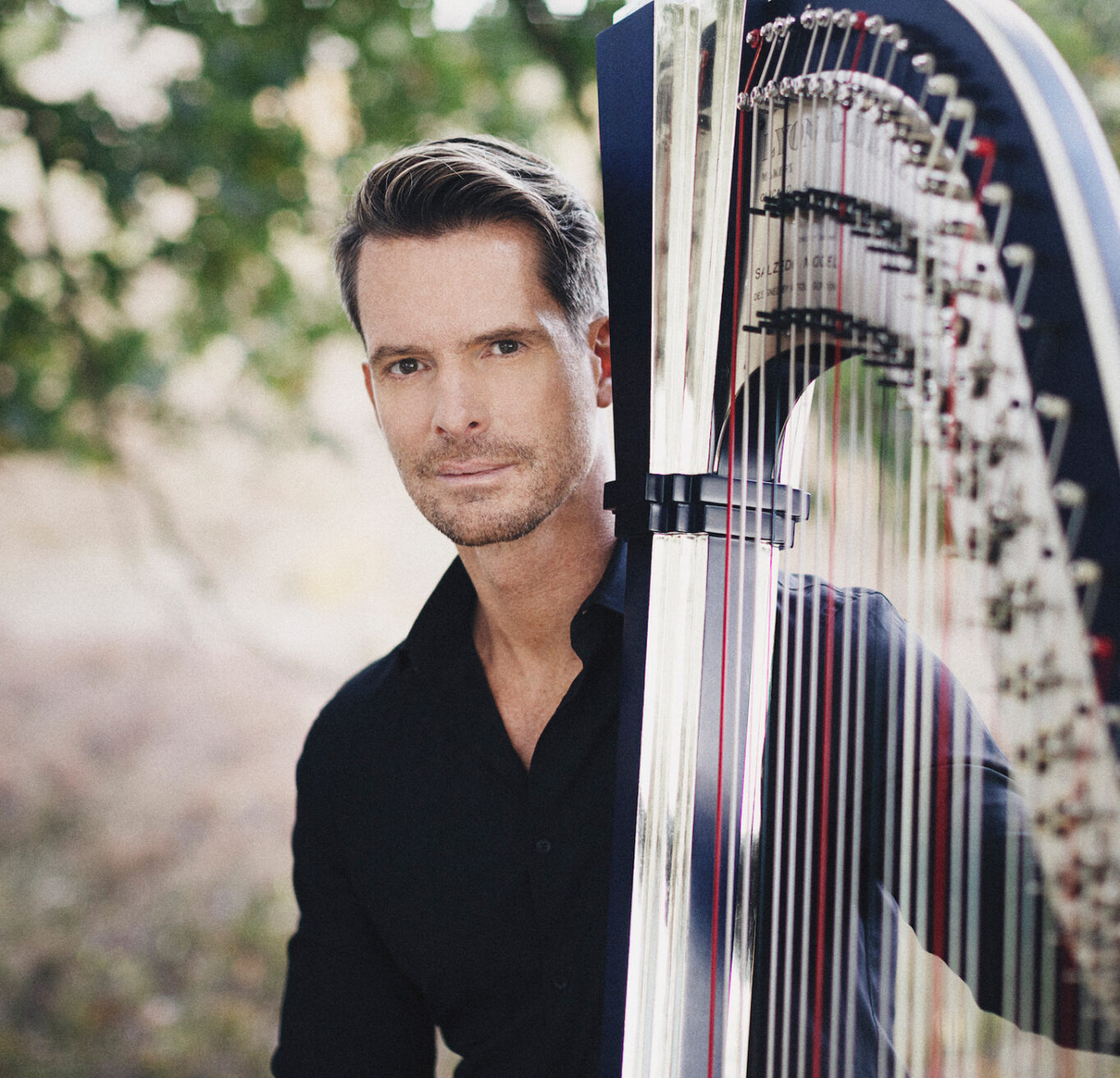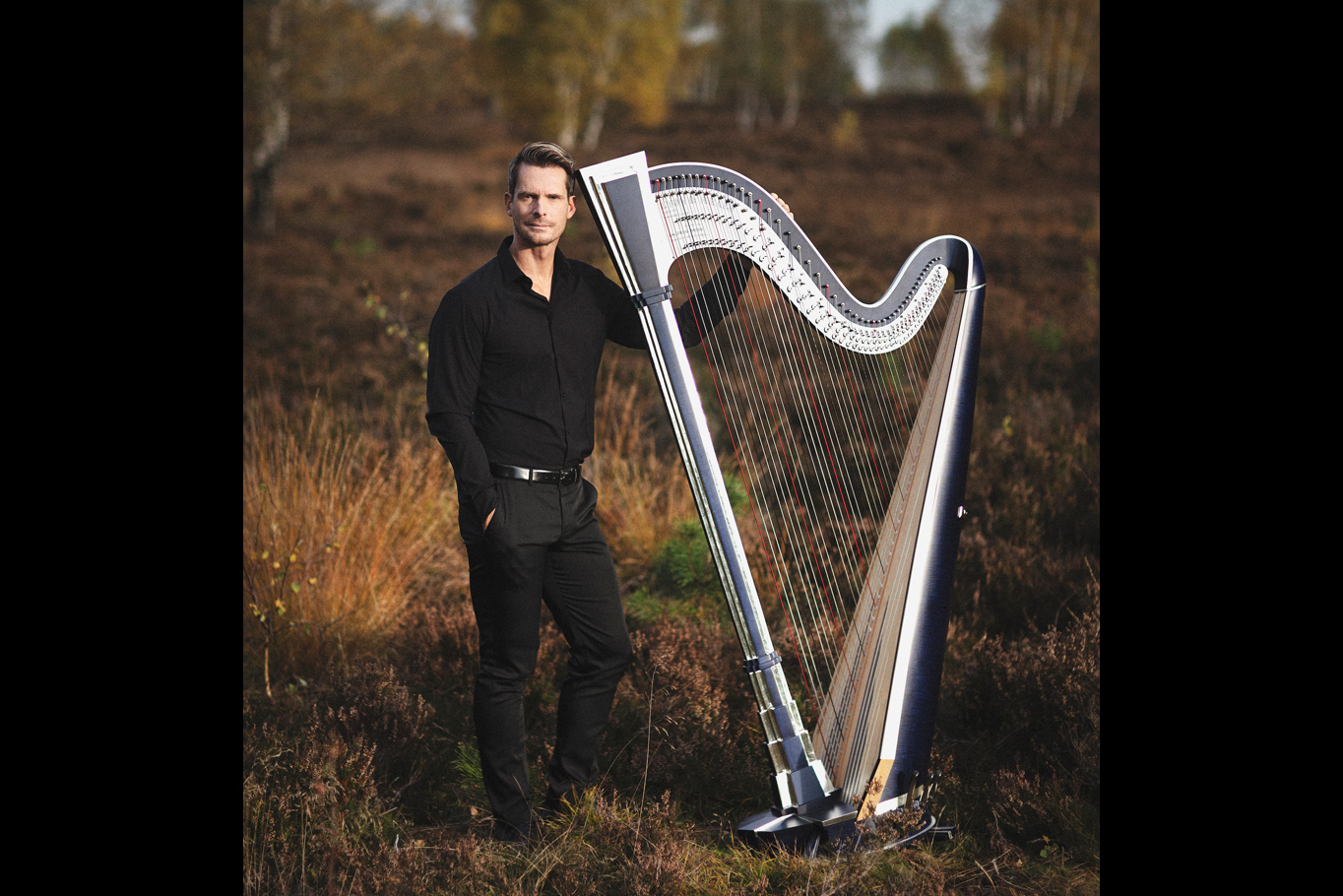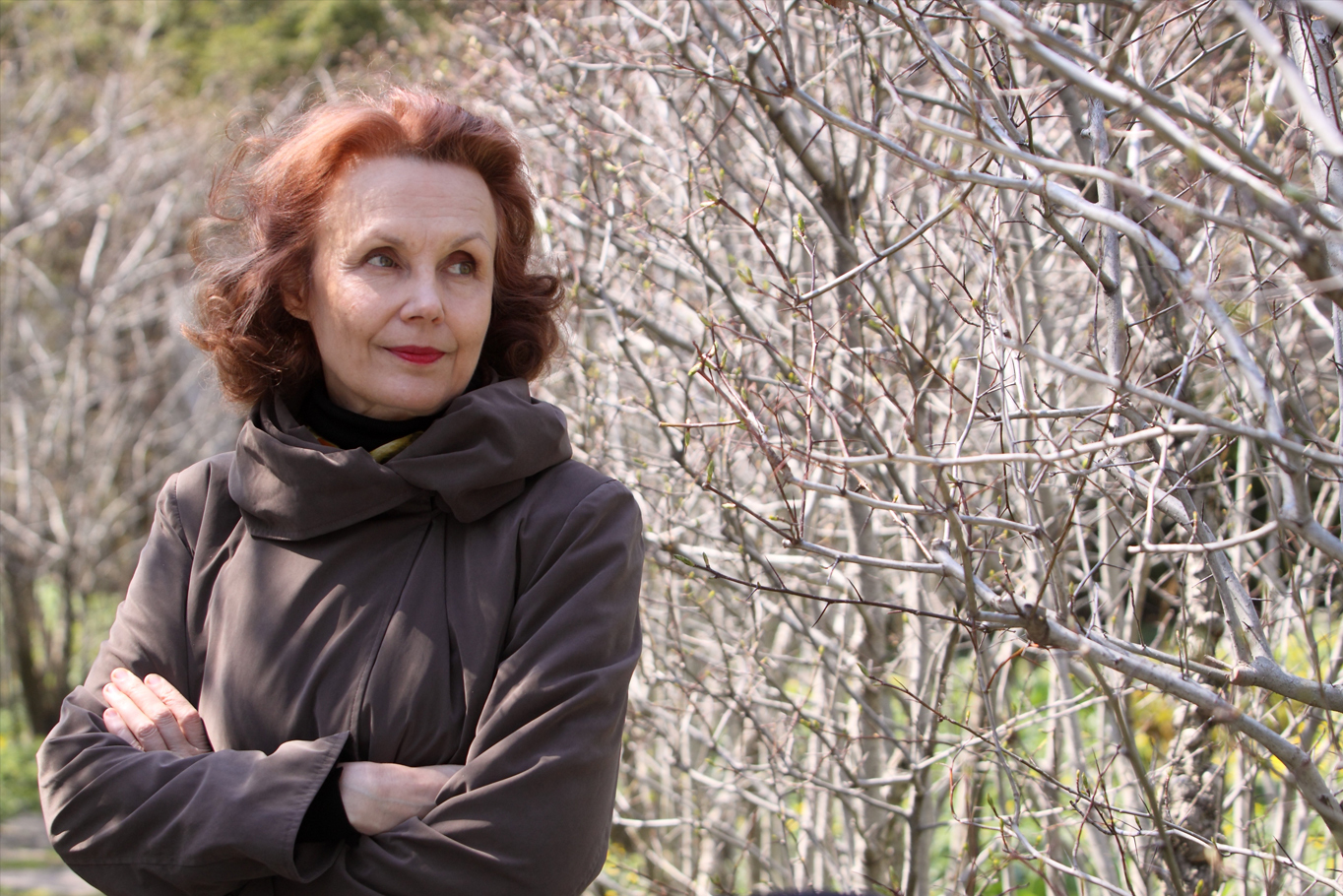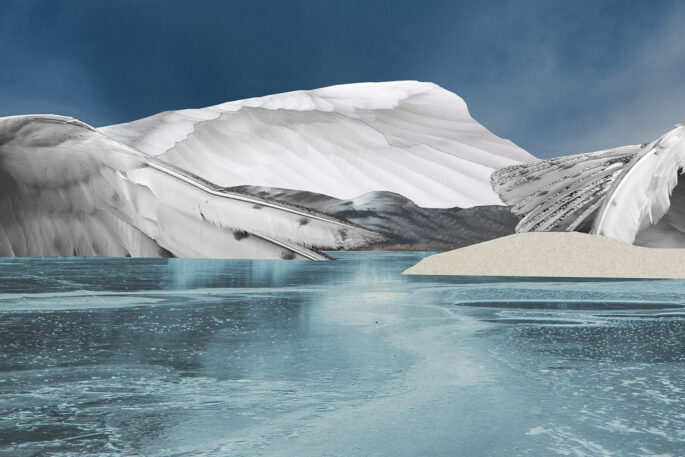
A Magical Atmosphere: Xavier de Maistre on the Beauty of the Harp
07 June, 2024
People thought Xavier de Maistre was mad to leave his job with the Vienna Philharmonic and strike out solo. But nearly 20 years later, having expanded the repertoire and redefined the possibilities for his instrument, he's never been happier with his choice.
By Hugh Robertson
If you were choosing an instrument with an eye to employability, the harp would be last on your list.
Unlike string instruments that number in their dozens, orchestras rarely need more than one harp at a time, if at all. And forget about a career as a soloist – the repertoire is tiny, and hardly any of the big-name composers have written concertos.
So when Xavier de Maistre – having landed just about the most highest-profile harp position in the world as Principal of the Vienna Philharmonic at the age of just 25 – told his friends he was quitting to become a soloist, they all thought he was mad.
‘I thought it would be a difficult decision because everybody around me told me, you will regret it, you should think, it's the best orchestra in the world, it's so secure, blah blah blah,’ he recalls with a laugh. ‘And then I met just one guy who told me, “No, you aren’t thinking clearly – you will never regret [going solo]. And so the next day I resigned.
‘And it's true. I never thought about going back to an orchestra. I never played in an orchestra again. I never will.’
A recurring theme in de Maistre’s career is being told something is not possible – and then going out and doing it anyway.
‘My teacher told me from the very beginning, it's not possible to become a soloist as a harpist – the best you can achieve is to get a job in a good orchestra,’ he recalls with a smile. ‘So I focused on orchestra jobs and I got the position with the Bavarian Radio and Lorin Maazel when I was 21 and then two years later with the Vienna Philharmonic. Which was actually for me the best I could imagine – I mean, this was the orchestra of my dreams when I was a child.
‘But then after a few years, I thought, “OK, that's not going to make me happy. It's not going to fulfill my life because I can't imagine doing the same thing for 40 years.”’
Of course there have been moments of doubt, but success seems to arrive long before any real thought of changing. ‘When I quit the Vienna Phil I was thinking, “Okay, maybe I'm not going to play the same halls I used to do. Maybe I will have to do compromises.” But now what happens is exceeding my expectations – I'm playing with the NHK Orchestra in Suntory Hall next month. I'm playing now in the Sydney Opera House, I play in Carnegie Hall.’

De Maistre’s love for the harp comes across so clearly in conversation, and here too he is eager to change people’s perceptions of his instrument. The popular idea of the harp is that it is the sound of angels and day spas, and all things floating and gossamer – but De Maistre takes pains to describe the…well, pains of playing it.
‘It's one of the very few instruments where you really shape the sound – with your skin, with your fingers,’ he says. ‘It’s a very sensual instrument because you hold it in your arms, and there is nothing in between: you have no bow, you have no hammers, you don't even have the nails like for the guitar.
You have a physical pleasure when you play the harp and when you see the reaction of the strings, when you know how they're going to vibrate.
‘You have two tonnes of pressure with the strings….And the harp is heavy, almost 50 kilos. So it’s not a very handy instrument at the beginning, but you develop a relationship and it becomes quite the prolongation of your body.
There is however one problem with the harp that cannot be changed, and that’s the lack of concerto repertoire. There is a Flute and Harp Concerto by Mozart (‘this is not a real harp concerto’, says de Maistre with a smile) – but precious little else, which made promoters and marketers wary of taking a chance on this budding soloist.
But that forced de Maistre to think outside the box in his repertoire choices. He first looked to music written for other instruments: Debussy loved the harp, and in fact encouraged harpists to perform his piano music; de Maistre realised that the pianoforte had a similar sound to the harp, so began adding Haydn piano concertos to his repertoire. The success of those projects led to more ambitious ones, from a Spanish album featuring castanets that de Maistre says caused conniptions at his record label – ‘They said, “Don't you think the harp is difficult enough to sell?” And I said, “No, you will see, it will be good.” – to arranging Smetana’s beloved Die Moldau for harp and orchestra.
It has certainly been a challenge over the years, but one de Maistre has enjoyed – not least because he can see the impact he is having on his instrument, and the opportunities he is creating for the next generation of harpists.
‘Of course I would love to have 27 concertos by Mozart or five concertos by Beethoven,’ he says, ‘But it means I always have to be innovative, and always have to find new ideas and to develop my own projects. And this is quite exciting because you have a feeling you can move forward and you can help your instrument too – that you can open new doors for the next generations.
‘And now, an orchestra performing a harp concerto is not...I wouldn't say it's usual, but it happens. And before, it would never happen. Only maybe once in 30 years [someone would program the] Mozart Flute and Harp Concerto.’
That increase in orchestra’s programming harp concertos has proved a catalyst for new harp concertos being written. This year de Maistre premiered a new concerto written for him by Hungarian composer Peter Eötvös, which premiered just before Eötvös’ death in March. De Maistre also reveals that Tan Dun, the Oscar-winning composer of Crouching Tiger, Hidden Dragon, is writing a new concerto for him.
And in July, de Maistre will make his Sydney Symphony debut with the Australian premiere of a harp concerto by the great Finnish composer Kaija Saariaho, as part of an all-Finnish concert conducted by Dalia Stasevska.
Described as ‘intricate’ and ‘crystalline’ by BBC Music Magazine and ‘luminous’ by MusicWeb International, it is a hugely absorbing and mesmerising piece of music by a composer voted the greatest living composer by BBC Music Magazine in 2019, not long before her death in 2023.
De Maistre is full of praise for the piece, and is clearly looking forward to performing it again. ‘I think it's a magical atmosphere,’ he says. ‘It's very airy. It's not an earthy piece. It's like sparkling all the time.
‘Celestial’ is a nice expression, that it's a piece which is from another world… It’s just beautiful, so you're just moved by the beauty and the grace of the phrasing.
De Maistre reveals that composers occasionally struggle to write a piece for harp since it is such a rare event, and it’s not uncommon for composers to send him several drafts of a new work to ensure it is playable, and that they are making the most of the unique characteristics of the instruments. But with Saariaho, such was her mastery of her craft, she simply presented the entire thing, complete and ready to perform.
‘I met her maybe twice,’ says de Maistre with a smile. ‘Once with the harp, once without the harp. Actually I was expecting that she would send some music [as a draft], but no…Kaija knew what she wanted and so it was pretty much finished when I got the harp music.’

I ask Xavier if there is some background to the music that he would like listeners to know before they arrive at the concert, some context or tidbit that might help them find their way into the music – but he is adamant that none is needed.
‘I think Kaija’s music doesn't need much explanation,’ he says, full of admiration for this towering figure. It lives very much in your own imagination, and everyone is going to thin of something different.’
‘This is a good thing about music, that you don't need long explanations,’ he continues. ‘At the end of the day, everyone in the audience is going to experience their own musical journey. It's not like when you have a theatre, cinema, or even ballet, where you have a story and where you're like pretty much bound by the story. But [in music] there is so much, so much space for your own sensibility.’
As a final thought, de Maistre ends by singing the praises of his instrument’s versatility once more, specifically the wide range of sounds it can produce – a quality that Saariaho used to the utmost in this concerto.
‘When I play the harp I feel like I play a whole orchestra, because you can make so many different colours,’ says de Maistre. ‘You can produce a very rich, broad sound, which reminds me of a full symphony orchestra.
[And] I have the impression when I play this piece that I play the orchestra. Because I mean, every time I play a note, it's amplified by another instrument. So it's really funny because you have the impression of playing on a huge harp – which is the orchestra. And of course, Kaija’s writing fits the harp. I think it's an instrument she loved, she used a lot in operas. And it's a musical language which is fascinating and quite magical.’
Experience the magic of the harp with Xavier de Maistre and the Sydney Symphony Orchestra in July
Dalia Stasevska conducts Sibelius' Fifth Symphony
Finnish conductor Dalia Stasevska conducts this program of works by her homeland’s greatest composers – Sibelius’ extraordinary Fifth Symphony, Einojuhani Rautavaara’s Cantus Arcticus and Kaija Saariaho’s Harp Concerto featuring soloist Xavier de Maistre.
5 & 6 July | Sydney Opera House Concert Hall
